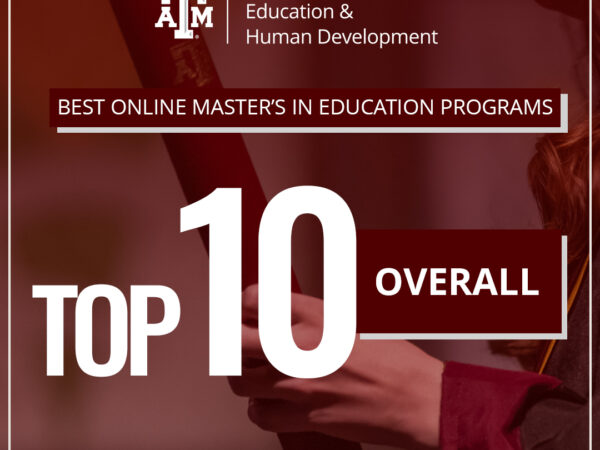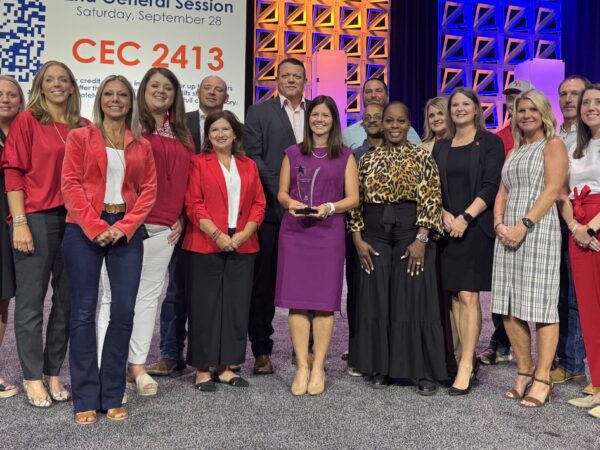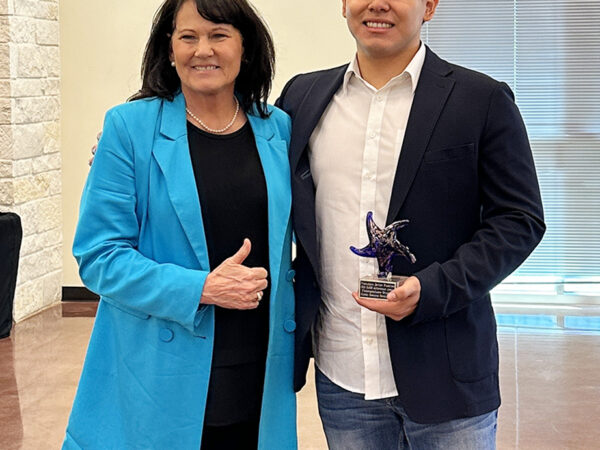Best practices for online teaching amid COVID-19
With minimal notice, face-to-face classes were forced to move to online formats in schools and universities across the country due to COVID-19. Online education experts Dr. Christine Mark and Dr. Jere Liu offer best practices and tips for instructors to make their online courses more successful.
Mark, an instructional associate professor in the Department of Educational Administration and Human Resource Development, specializes in online learning.
“Some students are dealing with stressful situations with their families, health and financially,” Mark said. “As instructors, we have the opportunity to help stabilize and normalize at least this part of their lives.”
Mark outlines the biggest challenges in online courses as providing a quality experience for learners, ensuring the learners are the ones actually doing the work, and learning all of the various technologies necessary, such as screen capture and video creation.
To provide a meaningful, quality experience for learners Mark said learners must be engaged in the course by interacting with content, peers and the instructor. She recommends designing the course to maximize these interactions by using instructor video and synchronous group activities.
“Assuring that the learners are the ones actually completing the work can be accomplished by not relying heavily on exams,” Mark said.
She recommends instructors create meaningful assessments like personalized presentations from students using video. For courses that must rely on formal exams, virtual proctoring can maintain integrity.
Her suggestion for educators who are not familiar at all with online teaching is to seek out a colleague who has experience and ask for help, this can be a fellow instructor or an instructional design specialist.
“There is nothing better than getting help from a seasoned professional,” Mark said. “Getting help from another instructor is valuable as the experienced instructor already knows what works and what does not work and this can save valuable time.”
Liu is an instructional design specialist for the Department of Educational Administration and Human Resource Development. He encourages instructors that are unfamiliar with online teaching to reach out to their instructional design specialists because they are experts in creating successful online learning environments.
Types of online learning environments
Typically, online courses take place on Learning Management System, like Blackboard or Google Classroom. The delivery of an online class in an LMS can be synchronous or asynchronous.
Synchronous means students and the instructor are online at the same time from different locations using the same communication tool, such as Zoom or Google Hangouts. Asynchronous allows students to have access to course materials at any time.
“Successful online courses combine synchronous and asynchronous teaching methods,” Liu said.
Regardless of the delivery method, Mark said everything should be driven by the learning objectives set for the course. She utilizes both methods in her courses making video lectures asynchronous, so students can pause to take notes and synchronous group meetings to foster discussion.
Typically, administrators and IT staff make decisions about technology and tools made available to instructors. Mark stresses that schools should seek input from the instructors using the technology.
“There are many great tools available for engaging students in online learning and the instructors who have studied the pedagogy and understand the needs of their students and the best way to learn the course content should be able to have access to the tools best designed for this purpose,” Mark said.
Most importantly, Mark said instructors need to communicate extensively with their students and reach out to the ones that are struggling. Instructors should be flexible and extend different learning opportunities to their students. This is especially important during the current pandemic crisis.
“Having a sense of humor and just letting your students know that you are human and dealing with the situation as well may help your students,” Mark said.
About the Writer
Heather is responsible for news coverage in the Department of Health and Kinesiology, as well as the Department of Educational Administration and Human Resource Development.
Articles by HeatherFor media inquiries, contact our Media Relations Coordinator, Ashley Green
Fundraising
To learn more about how you can assist in fundraising, contact Amy Hurley, Director of Development ahurley@txamfoundation.com or 979-847-9455














